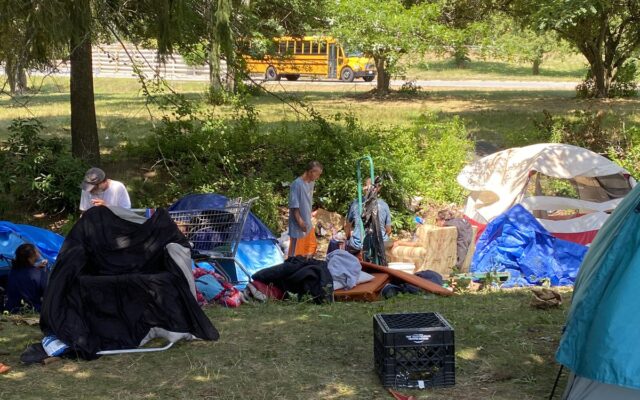
Deering Oaks column leaves out solutions to mental health and homelessness
By Dennis Marble
Matt Gagnon recently published in this newspaper an opinion column based on experiences he and his family had in Deering Oaks Park in Portland. It pointed out some of the worst in us, and I am not sure what his point was.
His writing described bad times for us regular folks in terms of intrusive and badly behaving homeless people, used needles strewn in public places, and “in your face†times with people seeking or selling drugs. He also took the time to cast social workers as inept but well intentioned, city leaders as being befuddled, and police officers being asked to do too much.
The biggest flaw in his presentation is his unilateral perspective — the piece is accurate from the point of view of him, his family, the other ball players and the police. But it is sorely lacking any view from those he terms homeless, mentally unstable and transient, using drugs and committing violent crimes. It sure sounds like good guys versus bad guys to me. His column cherry picks facts and leaves out the broader reality.
But maybe he wasn’t working with words in an effort to offer any help or solutions.
People don’t choose to try to live in a state of homelessness. People do not aspire to live a life spent looking hard for their next fix. City staff, elected officials and non-profit leaders are not second-class professionals who work hard to be inept.
I agree with Gagnon that he and his family deserve to feel safe in a public park (and so does everyone else), and I agree that police officers have steadily had expectations of them increased by the rest of us, mostly in the general area of mental health crises. And what we have all been witnessing has been an increase in scale of the visibility and number of unstable adults.
Poverty, illnesses and addictive tendencies have met insufficient resources and poor public policy, and all of that has collided with fear, stigma and a perverse interpretation of individual rights. I agree with anyone who thinks it’s hard to feel compassion for a smelly adult male who is in a public park, howling at the moon. It is — and it’s really hard for the guy doing the howling. Remember, these adults were once children.
The biggest problem I have with this column is that it’s divisive, just like much of party politics. In the real, everyday world, the problem at hand is real and it is growing because it’s complicated.
Improving things for the family going to the park, for the police, for the municipal leaders, for the people on the streets, and for every single taxpayer requires deep, difficult and collaborative work.
Adequate, affordable housing, diversion and recovery programs, emergency shelters and better mental health treatment need to be more robust and intertwined. Our law enforcement men and women, our social workers, and our municipal leaders share frustration with the current situation.
It will only be through acting collectively that we will have any chance of making real progress, to craft better public policy around the issues of what’s a crime and what’s a cry for help, around when is money invested in law enforcement more effective than dollars spent on diversion and treatment, and how to make the entire safety net more affordable. Division and blame only serve to waste public resources and create more suffering.
I challenge Gagnon to invest some real time meeting with people representing the categories he cites, and to then write a column offering some solutions.
Marble of Hampden served as the executive director of the Bangor Area Homeless Shelter for 20 years.